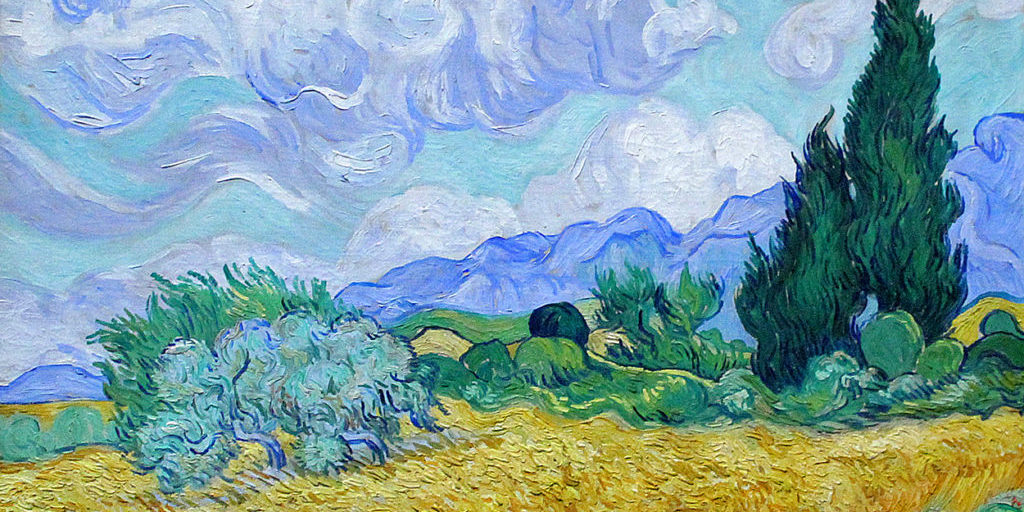
God, Creation Ex Nihilo, and Immutability: Does God Change By Virtue of Creation?
The new issue of Credo  Magazine is titled The Immutability of God. The following is an excerpt from Richard C. Barcellos’ article, God, Creation Ex Nihilo, and Immutability: Does God Change By Virtue of Creation? Richard Barcellos is Pastor of Grace Reformed Baptist Church, Palmdale, CA, and Associate Professor of Exegetical Theology at IRBS Theological Seminary. He is the author of Getting the Garden Right: Adam’s Work and God’s Rest in Light of Christ and The Covenant of Works: Its Confessional and Scriptural Basis.
Magazine is titled The Immutability of God. The following is an excerpt from Richard C. Barcellos’ article, God, Creation Ex Nihilo, and Immutability: Does God Change By Virtue of Creation? Richard Barcellos is Pastor of Grace Reformed Baptist Church, Palmdale, CA, and Associate Professor of Exegetical Theology at IRBS Theological Seminary. He is the author of Getting the Garden Right: Adam’s Work and God’s Rest in Light of Christ and The Covenant of Works: Its Confessional and Scriptural Basis.
What is creation? Quite often, when asked that question, everyday Christians immediately direct attention to what has been made. One might say, “Look at the vast sky above, with its moon and stars, its sun and clouds which give rain from heaven.” We might point to the ocean and all its deep mysteries or the Grand Canyon’s majestic scenery. This is not a wrong answer to the question. Theologians of the Christian theological tradition, however, give a more theocentric answer to that question. This is certainly due to the fact that they are theologians. But if we ponder the question a bit more, contemplating how the Bible presents to us the account of creation in Genesis 1, our answer would start with God and go out from there. For example, when defining the doctrine of creation, Herman Bavinck says, “[Creation is] that act of God through which, by his sovereign will, he brought the entire world out of nonbeing into being that is distinct from his own being.”[1] Notice that Bavinck begins his definition in a theocentric manner. Creation is an act of God. Bavinck’s definition is important for it clearly upholds a creator/creature distinction. Creation is of another order of being from divine being. Divine being is; created being is brought into existence by God. There are two orders of being: created being and non-created, or divine, being. The former is finite (i.e., having bounds or limits according to its created capacities); the latter infinite (i.e., having no bounds or limits according to its uncreated essence and is thus incomprehensible to the creature). The former is temporal (i.e., it began-to-be with time and exists in relation to it); the latter eternal (i.e., ever existing, “without beginning or end and apart from all succession and change”[2]). The former is dependent; the latter independent. Creatures are contingent; God is not. As John of Damascus said long ago, “All things are distant from God . . . by nature.”[3] Created nature and divine nature are both distinct and different in kind.
Creation ex nihilo entails that the eternal God, the immutable God, the infinite God, the Father, Son, and Holy Spirit, brought creatures into existence without the use of existing materials. This also means creation brought no change in God, though it came from God. Things which come from God are teeming with change, though there is no change in God in bringing forth that which changes. Bringing things into being distinct from himself makes God the efficient cause of creation. That is, God, and God alone, the triune God, brought creation into existence without any change in God the Trinity. According to Edward Feser, “An efficient cause is that which brings something into existence.”[4] Feser adds elsewhere:
An efficient cause . . . is that which brings something into being . . . An efficient cause thus actualizes a potency, and it does so by exercising its own active potencies or powers.[5]
With reference to God, this means that, since he is pure act, or not becoming or able to become in any sense, he alone is able to bring about the existence of things without change in himself. In fact, change in God is impossible. Divine existence is not one of “incomplete realization,”[6] as Richard A. Muller puts it. God is “the fully actualized being, the only being not in potency . . . “[7] Muller continues:
. . . God in himself, considered essentially or personally, is not in potentia because the divine essence and persons are eternally perfect, and the inward life of the Godhead is eternally complete and fully realized.[8]
God does not possess some sort of potency, some latent potential, to become what he is not. Nothing can change God; not creation nor even God himself. The execution of divine power in creation, then, does not make God what he is not; it reveals, or manifests, who he is.
Creation ex nihilo is a work of God, bringing being into being “distinct from his own being,” as Bavinck says. The creator is of a different order of being from the creation; God is not like us. This distinction is crucial to maintain. As Thomas Weinandy says, “As Creator, God . . . is not one of the things created, and is thus completely other than all else that exists.”[9] Webster’s penetrating words are to the point:
The difference between creator and creature is infinite, not just ‘very great’; ‘creator’ does not merely refer to the supreme causal power by which the world is explained, for God would then be simply a ‘principle superior to the world,’ or ‘the biggest thing around.’ Such conceptions falter by making God one term in a relation, and so only comparatively, not absolutely, different. . . . God the creator is not simply the most excellent of beings, because the distinction between uncreated and created being is not a distinction within created being but one between orders of being; God is not one item in a totality, even the most eminently powerful item in the set of all things.[10]
Endnotes
[1] Herman Bavinck, Reformed Dogmatics, gen. ed. John Bolt, trans. John Vriend (Grand Rapids: Baker Academic, 2004), 2:416, hereafter RD.
[2] Richard A. Muller, Dictionary of Latin and Greek Theological Terms, Second Edition (Grand Rapids: Baker Academic, 1985, 2017), 18.
[3] As quoted in Ian A. McFarland, From Nothing: A Theology of Creation (Louisville: Westminster John Knox Press, 2014), 59.
[4] Edward Feser, Scholastic Metaphysics: A Contemporary Introduction (Piscataway, NJ: Translation Books Rutgers University, 2014), 88.
[5] Feser, Scholastic Metaphysics, 42.
[6] Muller Dictionary, 11.
[7] Muller Dictionary, 11.
[8] Muller, Dictionary, 11. Muller goes on to state the following: “This view of God as fully actualized being lies at the heart of the scholastic exposition of the doctrine of divine immutability . . . Immutability does not indicate inactivity or unrelatedness, but the fulfillment of being.”
[9] Thomas Weinandy, “Human Suffering and the Impassibility of God,” Testamentum ImperiumVolume 2, 2009: 1. This can be found on-line at (http://www.preciousheart.net/ti/2009/52-). Accessed 9 February 2015.
[10] Webster, God without Measure, 1:91.

